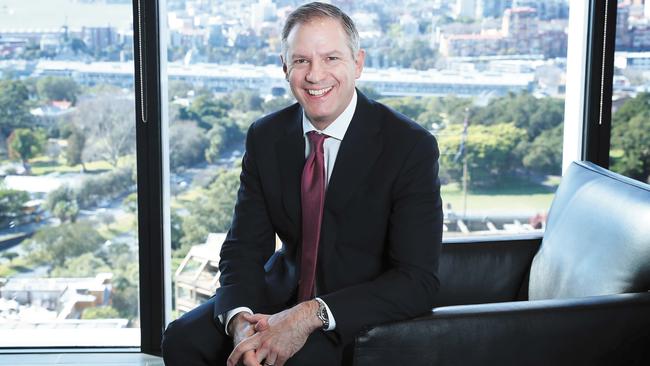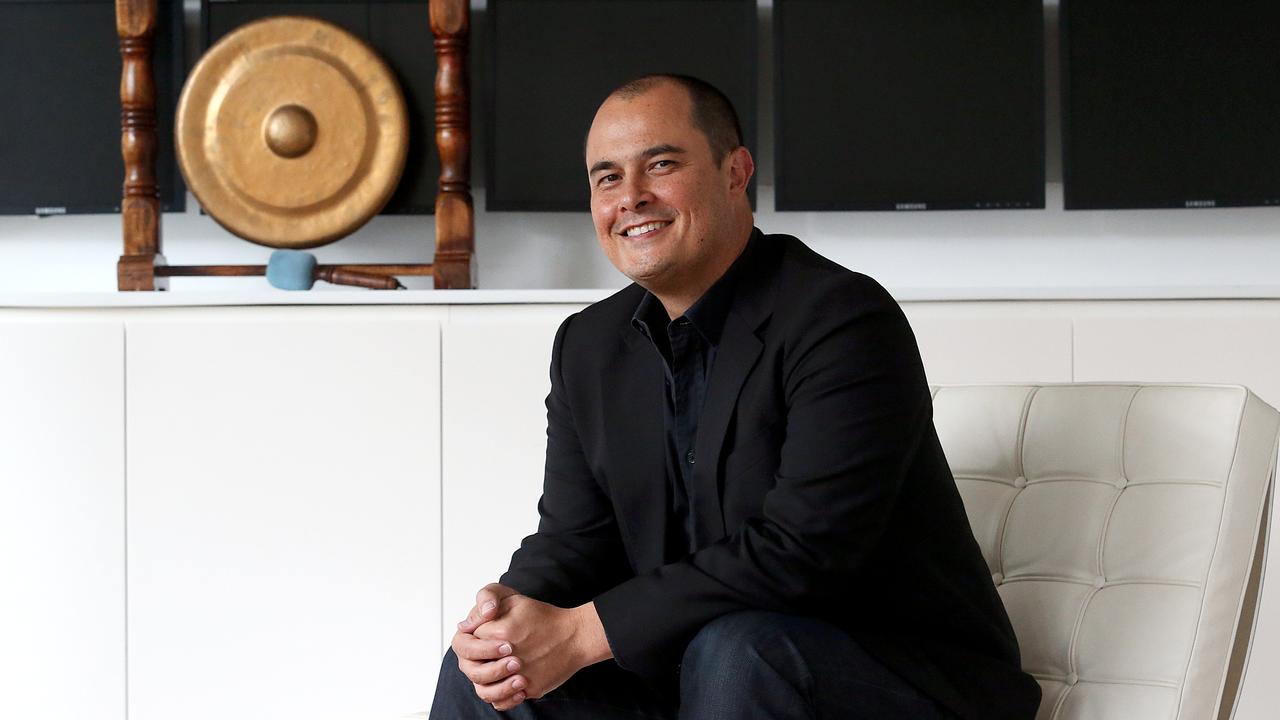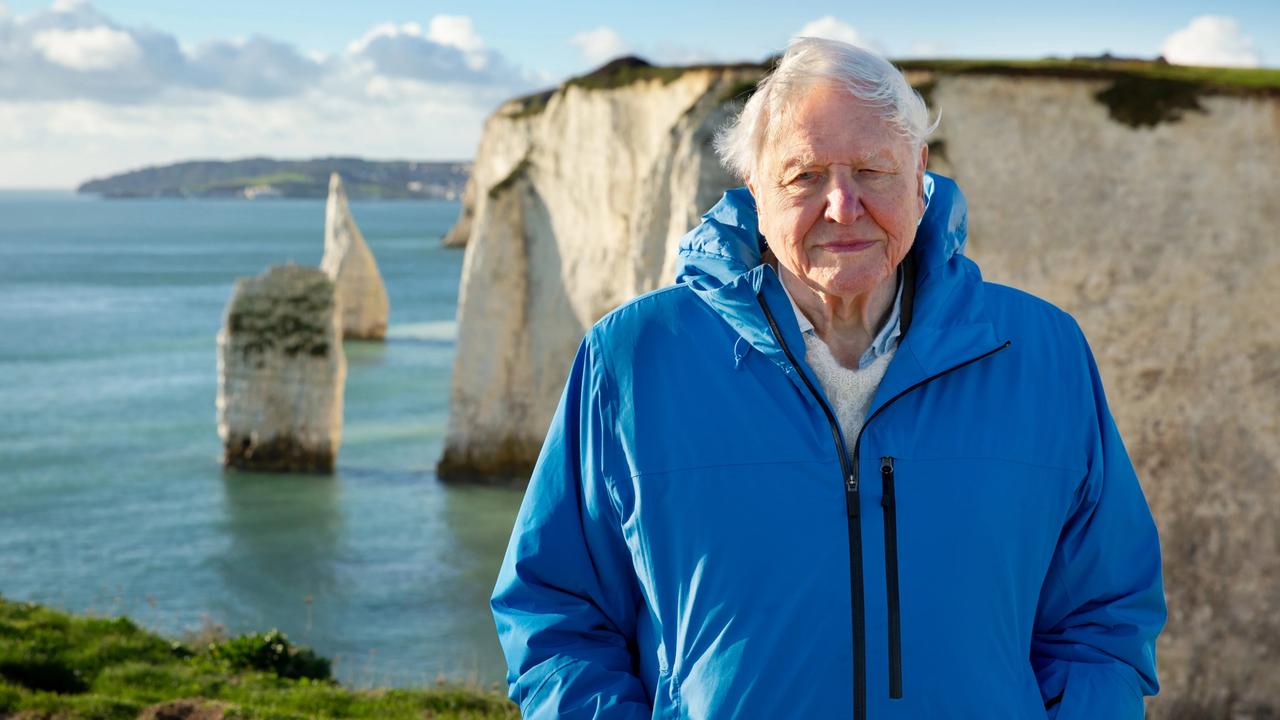Humble Ron Delia lets Amcor profits do the talking
Ron Delia was just 43 when he took over as chief of Amcor in mid-2015. He prefers to let the group’s numbers speak for themselves and they are impressive.

Ron Delia was just 43 when he took over as chief executive of Amcor in mid-2015, stepping into the shoes of the packaging company’s now legendary boss Ken MacKenzie.
The New Jersey-born Delia was MacKenzie’s first external hire in 2005, a year after the cartel scandal that rocked the company.
MacKenzie, now BHP’s chairman, taught the Harvard and McKinsey-trained Delia plenty during his 10-year apprenticeship for the top job, notably the importance of remaining focused and hiring the best talent.
But there was one trait inherent in Delia apparent to all the moment the former sales rep-turned management consultant walked into Amcor’s Melbourne headquarters to take up his role as general manager operations and development: humility.
“We have 46,000 people that make the place home and somebody is always the point person and more often than not, that tends to be the CEO. But I’m under absolutely no illusions that the ability to move the company forward does not fall with one person,’’ says Delia, now six years into his tenure.
“You have got to make, to the extent you can, the 46,000 people understand and believe that you get a better outcome as a result. As soon as you start to get wrapped up in the cult of the leader, then organisations start to lose their way.”
That “casting a degree of humility”, as Delia puts it – also a trademark of his predecessor – is one of the reasons you have never read a media interview with Delia outside a results announcement. It’s the Amcor way.
“Personally, I’m really proud of it,” he says.
“As it relates to media, there’s a general respect and appreciation for keeping a low profile and that pretty much sums up the company. I don’t think I’m unique.”
Today is an exception. For the first time in his life, the Delia is up for talking about his children, his hobbies and what it’s like to move your family across the world to pursue your dream career.
“The company is doing great things and the story needs to be told and if I can contribute to that by doing an interview like this one, I’m happy to do it,” he says.
“But you’re not going to see me being very present publicly just for the sake of it.”
Delia prefers to let the numbers speak for themselves and right now they are impressive.
The firm just produced a record annual profit of $US939m, up from $US612m a year earlier. Profit margins expanded by 60 basis points and its sprawling global operations are now generating free cashflow of up to $US1.2bn.
Delia is forecasting earnings per share growth of 7 to 11 per cent in the year ahead and Amcor bull broker Morgan Stanley describes the firm as a “high-quality defensive exposure” offering “quality management with a strong track record”.
Amcor, which traces its origins to establishing Victoria’s first paper mill on the banks of the Yarra River in the 1860s, now runs 230 packaging factories across more than 40 countries and is one of the genuine Australian global corporate success stories of the last decade.
So what makes its American-born boss tick?
The 49-year-old reveals he is a big sports fan who played ice hockey at university and still plays today when he can.
He follows a trio of New York teams, a testament to his New Jersey heritage – the Rangers in his favourite sport, the Yankees in baseball and the Giants in American football.
His parents still live in New Jersey and Delia gets back to visit them when he can.
He’s lived in Melbourne on three different occasions of his life, the most recent the five years he was Amcor’s chief financial officer before becoming CEO.
“There was a lot to be said for living in suburban Melbourne and raising a family there. The only negative was the distance to family in the US,’’ he says.
In Melbourne he became an AFL fan and a St Kilda supporter after watching his first live game in 2004 between Brisbane and the Saints, when the latter was on the rise. During those five years in Melbourne he developed a close friendship with legendary Amcor investor relations chief John Murray, who tragically passed away in October 2016 due to complications from a brain tumour.
Some fund managers who met Delia at the time say it was the most upset they have ever seen him.
And now on our Zoom call, for a moment the unflappable American looks emotional when you raise the topic of the passing of Murray, a 17-year Amcor veteran.
“That’s still the absolute lowlight. John was a good friend, because when I joined I was his peer. He helped me adapt to Melbourne, the first time we moved there in 2005. John and his wife Sue were great kind of ambassadors. They helped me navigate the place a bit. And then John also had been around forever. So he knew the company, knew the external environment and helped me get up to speed in that regard,’’ he says.
“Fast forward to my time as CFO, we worked very closely, obviously, given the nature of his role. And we travelled extensively together during investor engagement in different parts of the world, essentially as peers.
“And then I became CEO, and John worked for me as part of the team and got sick in the first year. That was really devastating for a lot of us because he was also as visible as anybody inside the company. He was omnipresent in the business headquarters around the world. He was a big part of the culture and the fabric of the company. We were all quite saddened by his passing about 12 months later.”
One of the first big moves of Delia’s reign, following Amcor’s decision to spin off its Australian fibre and beverage packaging business in Australia into Orora, was to move its global HQ to Zurich.
His family lived there for four years before moving to Chicago 18 months ago so his 15 and 17-year-old children could complete high school in the country of their birth.
Delia is now a dual resident of America and Switzerland and over the past 18 months of the Covid pandemic has split his time between both countries.
“Having spent four or five years in Melbourne, and then more than four in Zurich, we’ve been around. Zurich is an incredibly diverse melting pot in terms of the expat community. So from that perspective, it was a great experience for all of us,’’ he says.
“I’ve been blessed with two great kids who have proven to be highly adaptable, and at times more so than their parents.”
Delia started his career in the packaging industry as a sales rep for the New Jersey-based American National Can Co after securing an MBA from Harvard University and a Bachelor of Science degree.
He says the case-study method of the Harvard Business School approach trained him well for his career.
“The amount of work that is thrown at you is impossible to keep up with and that’s part of the lesson. Prioritisation, focus, being efficient. As a business leader, it is a great preparation for decision-making and having a generalist perspective,’’ he says.
Delia also worked at McKinsey for five years before joining Amcor. It is a firm which polarises opinion. In the past Delia has described himself as both a fan and critic.
“The standards are very, very high. And so you then learn to raise your game, being surrounded by people who are operating and thinking at a high level and working really hard.
“You’re working with clients on really important issues, and they’re paying you a lot of money for your support. So you learn that level of professionalism and just a certain way of approaching things at a certain standard,’’ he says.
“On the other hand, you’re limited, you’re an external adviser, and you have access to a certain amount of information, but you never have the full context of the managers that you are advising. You just need a bit of humility when you’re in those roles. I think those consultants that adopt that mindset are the most effective.”
Amcor has used McKinsey during the tenures of both Ken MacKenzie and Delia, most recently to support its $US6.8bn takeover in 2019 of US flexibles packaging company Bemis, the biggest in its history.
The acquisition of Bemis, which makes flexible packaging for healthcare and consumer goods providers like Kraft Heinz, was transformative.
The all-scrip deal expanded the number of Amcor shares on issue by 35 per cent, increased its footprint from 30 countries to 40 and saw its primary stockmarket listing move to New York’s S&P 500.
Australian investors in Amcor now own CHESS depositary interests, which allow locals to trade interests in companies domiciled in foreign countries.
At the time critics such as Citi noted Bemis had anaemic volume growth in the years before the deal, had been too exposed to companies in secular decline and lacked penetration among fast-growing US customers.
Delia acknowledges there were challenges. But he now points to the scoreboard. The Bemis integration is complete and two years since the deal, the company has beaten its financial expectations by 10 per cent.
“Make no mistake, it was a massive undertaking. We went into it with our eyes wide open,’’ he says.
Amcor has expanded with about 30 acquisitions over the past 10 years and Delia has had a hand in most of those.
He says a secret of success has been not stepping outside its core, buying businesses that are already strong and then delivering on the synergies promised to shareholders. In fact Amcor has been narrowing its core over the past decade, selling as many businesses as it has bought.
Ninety-five per cent of Amcor’s operations are now offshore but more recently the company has returned to reinvest in its Australian roots as part of Delia’s commitment to making all of Amcor’s packaging products recyclable by 2025.
It has produced what it says is the nation’s first food flexible packaging made with recycled content for KitKat and helped Smarties become the first confectionery brand to move to recyclable paper packaging.
“It’s back to the sustainability story,” Delia says.
“The Australian consumer values all the things and all the functionality of the packaging for their food and healthcare products that you would expect. And they’re also particularly environmentally conscious. That makes for a perfect opportunity for us to bring some of these solutions to the market.” He will never trade his apprenticeship in Australia as the company’s CFO, where he got to focus on the balance sheet.
“It’s probably no different whether you’re a general manager or you’re a plant or sales manager, you tend to be focused on the income statement. You don’t necessarily think about financing, how the firm generates its cash and how it allocates its cash for the benefit of shareholders.
“That’s kind of a unique perspective that the CFO has to have. And so that was a fantastic accelerator for me to take on this role as CEO,” he says.
Delia will continue to focus only on what he can control. After today’s interview, he will relish retreating back out of the limelight, just the way he likes it.
“You have got me to say more about my family that I have in the last six years. I’m sure I’ll wake up tomorrow and wonder why you got me to say all that,’’ he says.
“But you won’t see me all over social media, you won’t see me splashed around different aspects of the media.”
As our interview concludes, it is back to the script. The switch is flicked.
As we wave goodbye over Zoom he says, dryly: “Thanks for your interest in Amcor.”




To join the conversation, please log in. Don't have an account? Register
Join the conversation, you are commenting as Logout